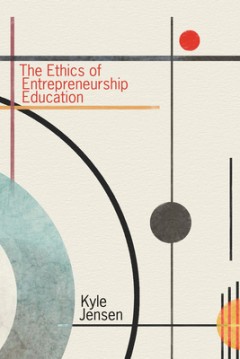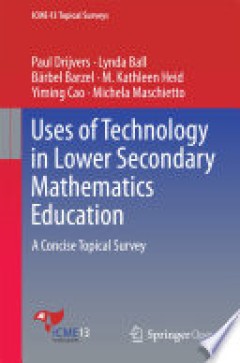Filter by
# Debug Box
/var/www/htdocs/pustaka-digital/lib/SearchEngine/SearchBiblioEngine.php:688 "Search Engine Debug 🔎 🪲"
Engine Type ⚙️: "SLiMS\SearchEngine\SearchBiblioEngine"
SQL ⚙️: array:2 [ "count" => "select count(sb.biblio_id) from search_biblio as sb where sb.opac_hide=0 and ((match (sb.topic) against (:subject in boolean mode)))" "query" => "select sb.biblio_id, sb.title, sb.author, sb.topic, sb.image, sb.isbn_issn, sb.publisher, sb.publish_place, sb.publish_year, sb.labels, sb.input_date, sb.edition, sb.collation, sb.series_title, sb.call_number from search_biblio as sb where sb.opac_hide=0 and ((match (sb.topic) against (:subject in boolean mode))) order by sb.last_update desc limit 10 offset 0" ]
Bind Value ⚒️: array:1 [ ":subject" => "'+\"Teaching\"'" ]

Computational Thinking Curricula in K–12: International Implementations
An international overview of how policy makers, curriculum developers, and school practitioners can integrate computational thinking into K–12 curricula. In today's digital society, computational thinking (CT) is a critical component of all children's education. In Computational Thinking Curricula in K–12, editors Harold Abelson and Siu-Cheung Kong present a range of professional perspec…
- Edition
- -
- ISBN/ISSN
- 9780262378642
- Collation
- xviii, 304 p. : ill.
- Series Title
- -
- Call Number
- 004.071 ABE a

Education and learning for sustainable futures: 50 Years of Learning for Envi…
Responding to growing interest in the sustainable development goals (SDGs) and global concern over climate change, this volume provides an analysis of how our understanding of the relationship between environment and education has evolved during the past 50 years. Spanning from the 1972 United Nations Conference on the Human Environment through to the present day, chapters examine whether our a…
- Edition
- -
- ISBN/ISSN
- 9781003467007
- Collation
- xvi, 118 p. : ill.
- Series Title
- -
- Call Number
- 304.2071 MAC e

The ethics of entrepreneurship education
Entrepreneurship is now everywhere on college campuses: from classes and contests to accelerators and incubators spread across diverse departments and programs. These activities cultivate tomorrow's Facebooks and Googles but can also put profit in conflict with pedagogy. Should faculty keep information about student start-ups confidential? Should universities, or educators personally, invest in…
- Edition
- -
- ISBN/ISSN
- 9780262380478
- Collation
- xi, 209 p. : ill.
- Series Title
- -
- Call Number
- 174.4 JEN t

Planning and analyzing teaching: using the variation theory of learning
Using illustrative teaching case studies, this book demonstrates how teaching informed by a learning theory, specifically variation theory, can equip teachers to facilitate possibilities for students' learning in effective and powerful ways. For a long period of time teaching has been "black-boxed", in favour of other explanations of why students learn or not, such as motivation and social inte…
- Edition
- -
- ISBN/ISSN
- 9781003194903
- Collation
- xiii, 103 pages; illustration
- Series Title
- -
- Call Number
- 371.102 KUL p

Theorizing teaching : current status and open issues
This open access book seeks to create a forum for discussing key questions regarding theories on teaching: Which theories of teaching do we have? What are their attributes? What do they contain? How are they generated? How context-sensitive and content-specific do they need to be? Is it possible or even desirable to develop a comprehensive theory of teaching? The book identifies areas of conver…
- Edition
- 1
- ISBN/ISSN
- 9783031256134
- Collation
- xx, 367p: ill.
- Series Title
- -
- Call Number
- 375 THE t

Dimensione didattica, tecnologica e organizzativa. La costruzione del process…
Volume pertama dari proyek editorial dibagi menjadi dua karya: ini didedikasikan untuk hubungan antara dimensi metodologis-didaktik, teknologi dan organisasi dalam proses inovasi sekolah; yang kedua didedikasikan untuk guru pendidikan inklusif dan peran teknologi dalam layanan penilaian keterampilan dan bimbingan karir. Tujuan dari kedua karya tersebut sama: mengumpulkan refleksi dan mendukung …
- Edition
- 2
- ISBN/ISSN
- 1030823026
- Collation
- 226 p
- Series Title
- Media e tecnologie per la didattica - Open Access, 1
- Call Number
- 370

Uses of technology in lower secondary mathematics education : a concise topic…
Digital technology1 is omnipresent in society. Revolutionary technological developments change the character of professional environments, and therefore put new demands on workers (Hoyles, Noss, Kent, & Bakker, 2010). Consequently, there are new demands on educational systems in order to prepare students for future professions. Importantly, technology also offers opportunities for teaching a…
- Edition
- 14
- ISBN/ISSN
- 9783319336664
- Collation
- vii, 34 p
- Series Title
- ICME-13 Topical Surveys,
- Call Number
- 510.712 DRI u

Imaging identity: media, memory and portraiture in the digital age
Imaging Identity presents potent reflections on the human condition through the prism of portraiture. Taking digital imaging technologies and the dynamic and precarious dimensions of contemporary identity as critical reference points, these essays consider why portraits continue to have such galvanising appeal and perform fundamental work across so many social settings. This multidisciplinary …
- Edition
- -
- ISBN/ISSN
- 9781760460419
- Collation
- xviii + 146 p
- Series Title
- -
- Call Number
- 757 HIN i

The Cold War in the classroom : international perspectives on textbooks and m…
This book explores how the socially disputed period of the Cold War is remembered in today’s history classroom. Applying a diverse set of methodological strategies, the authors map the dividing lines in and between memory cultures across the globe, paying special attention to the impact the crisis-driven age of our present has on images of the past. Authors analysing educational media point t…
- Edition
- -
- ISBN/ISSN
- 9783030119997
- Collation
- -
- Series Title
- -
- Call Number
- 909.825072 chi

The educational turn : rethinking the scholarship of teaching and learning in…
This open access book explores how educational researchers working at the edges of innovations in languages and literacies, leadership, assessment, social and cultural transformation, and pedagogies rethink the educational turn in new sites. It engages with the Scholarship of Teaching and Learning (SoTL) for educational researchers to redefine ways of knowing about learning post-COVID and deepe…
- Edition
- -
- ISBN/ISSN
- 9789811989513
- Collation
- XX, 233 p
- Series Title
- -
- Call Number
- 708 KAT t
 Computer Science, Information & General Works
Computer Science, Information & General Works  Philosophy & Psychology
Philosophy & Psychology  Religion
Religion  Social Sciences
Social Sciences  Language
Language  Pure Science
Pure Science  Applied Sciences
Applied Sciences  Art & Recreation
Art & Recreation  Literature
Literature  History & Geography
History & Geography